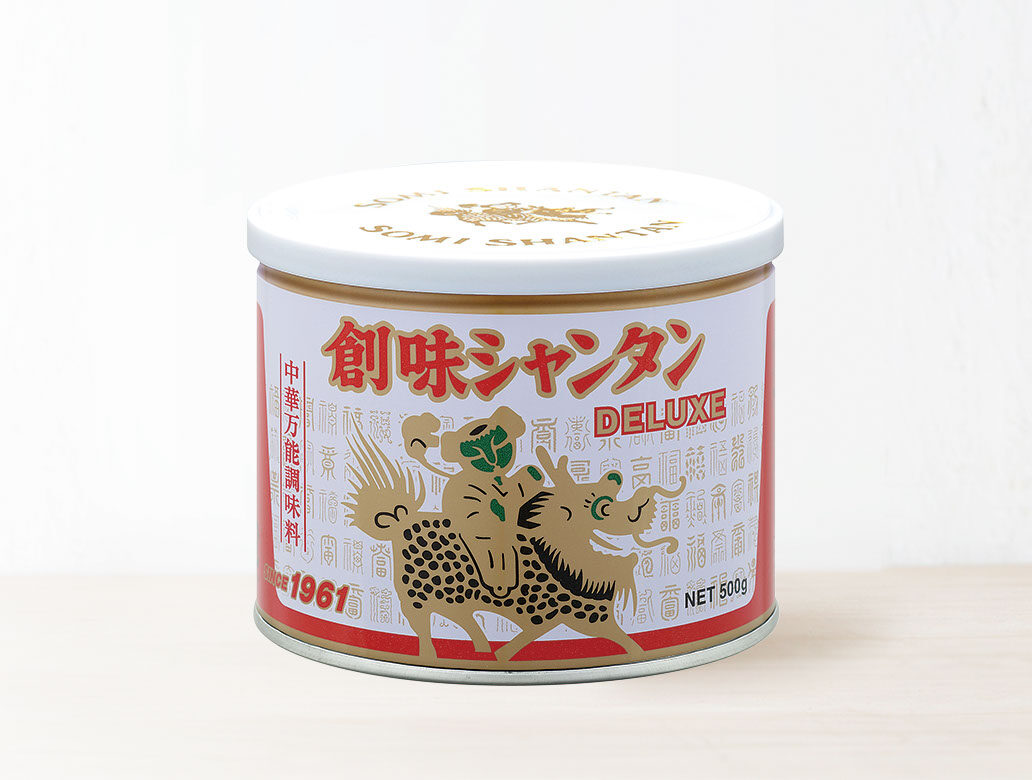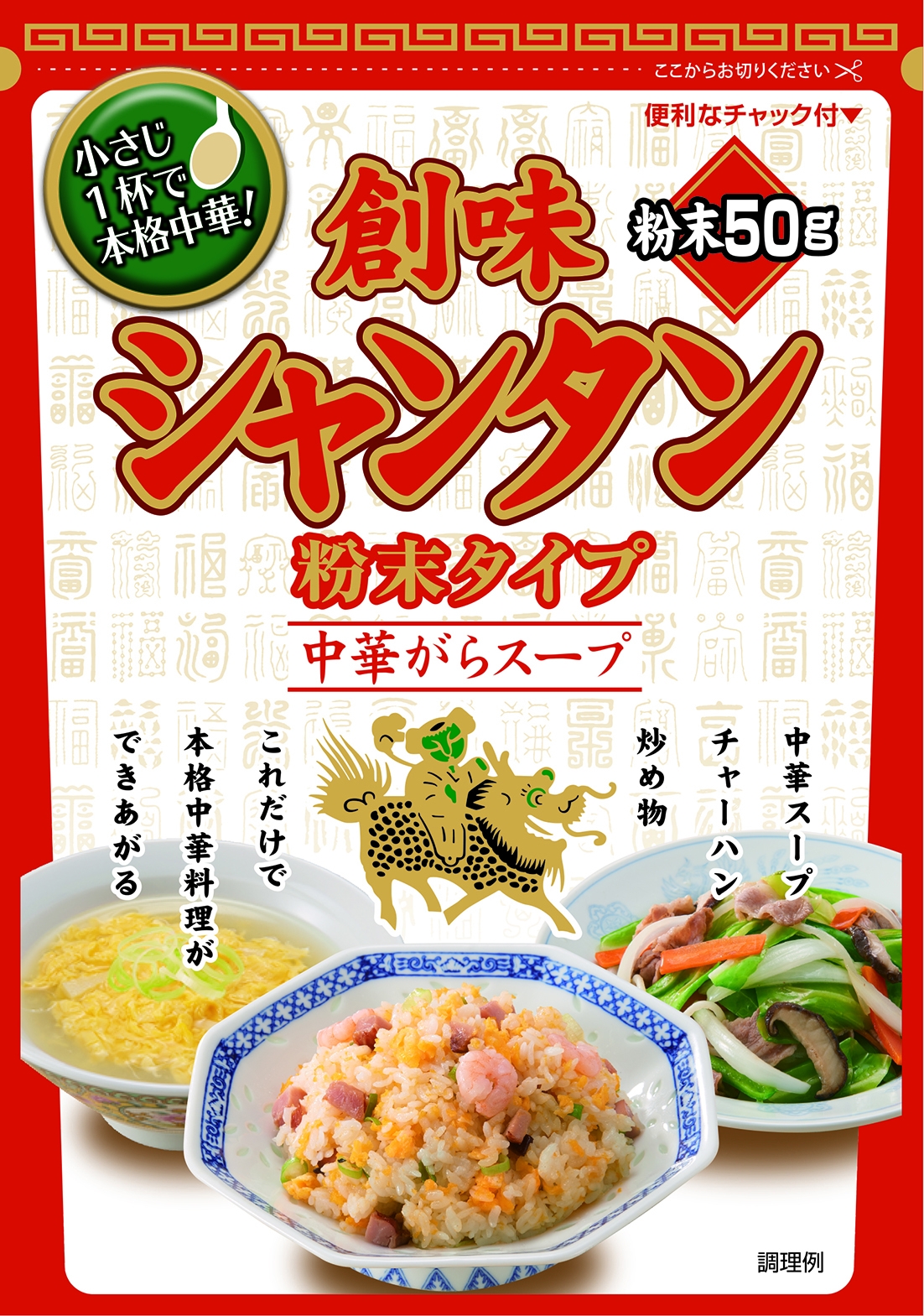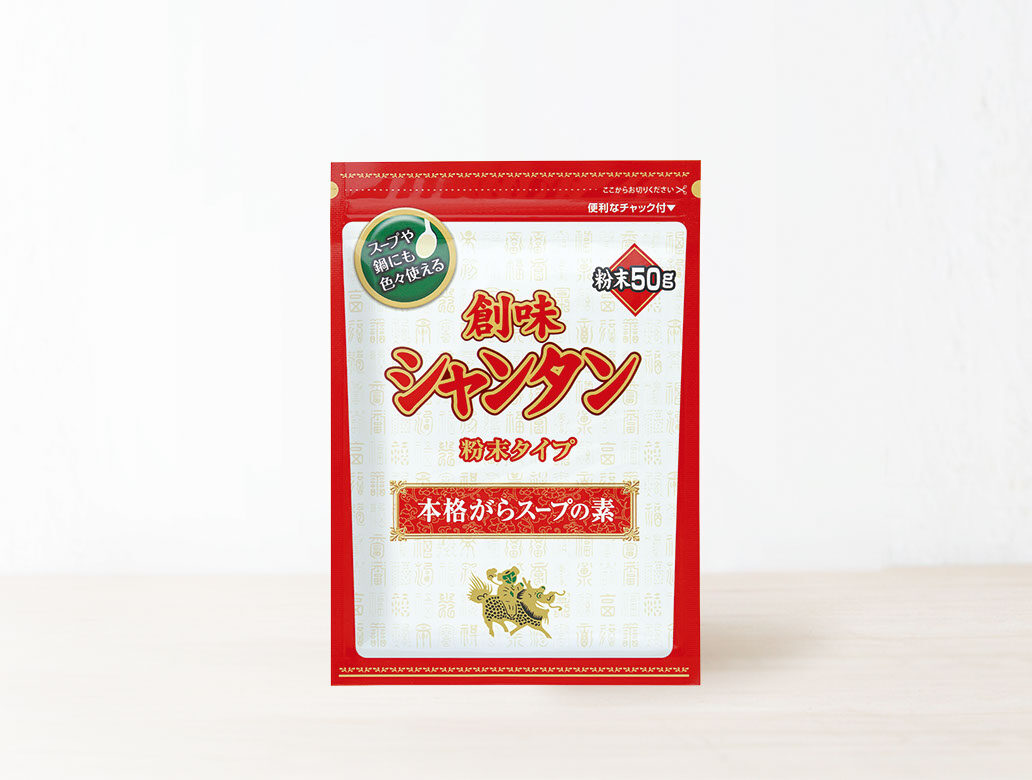In the bustling world of culinary delights, certain ingredients rise to prominence for their ability to transform ordinary dishes into extraordinary meals. Among these, Somi Shantan stands out as a beloved Chinese all-purpose seasoning, celebrated for its ability to effortlessly replicate professional-grade flavors. However, a persistent whisper has circulated through online communities and kitchens alike: is Somi Shantan bad for your health? This question has sparked considerable debate and concern among home cooks and food enthusiasts.
The allure of achieving authentic Chinese flavors with just a spoonful is undeniable, making Somi Shantan a staple in many pantries. Yet, the accompanying rumors of it being "unhealthy" or even "forbidden to eat" can be quite unsettling. What exactly is the truth behind these claims? Is there a scientific basis to these fears, or are they simply misconceptions fueled by a lack of understanding about food additives and modern food production? This article delves deep into the ingredients, history, and common concerns surrounding Somi Shantan, providing a comprehensive and balanced perspective to help you make informed dietary choices.
Table of Contents
- What Exactly is Somi Shantan?
- The Weipa Connection: A Shared History and Public Perception
- Unraveling the Health Concerns: Is Somi Shantan Really Bad for You?
- Scientific Consensus and Safety Regulations: What the Experts Say
- Moderation and Mindful Consumption: Key to Healthy Eating
- Exploring Alternatives for Flavor: Natural Choices
- Making Informed Choices: Your Health, Your Responsibility
- Conclusion: The Verdict on Somi Shantan
What Exactly is Somi Shantan?
Somi Shantan is a versatile, all-purpose Chinese seasoning paste renowned for its rich, umami-packed flavor. It's designed to bring the complex taste of authentic Chinese cuisine to your home cooking with minimal effort. The product is primarily based on a clear soup (清湯, "chintan") made from simmering chicken bones and pork, combined with a blend of fats, aromatic vegetables, and over 20 types of spices. This unique combination creates a concentrated flavor profile that enhances a wide array of dishes, from stir-fries and soups to fried rice and noodle dishes.
- Filmy Fly Vip
- Wwwbollyflixcom
- Telugu Movierulz 2025 Your Ultimate Guide To The Hottest Blockbusters And Downloads
- Vegamoviessi
- Sexy Movie Download Full Hd
Often praised for its "natural umami" compared to some other flavor enhancers, Somi Shantan incorporates extracts from ingredients like kelp, bonito flakes, and chicken stock. It's available in various forms, including paste (the most common canned version), tube, and powder, offering convenience for different cooking needs. Its popularity stems from its ability to deliver a consistent and robust flavor, making it a go-to choice for those seeking to replicate restaurant-quality Chinese food at home.
The Weipa Connection: A Shared History and Public Perception
To fully understand Somi Shantan, it's essential to discuss its close relationship with another popular Chinese seasoning, Weipa (味覇). For many years, these two products were intertwined, leading to considerable confusion among consumers. From 1981 to 2015, Somi Shokuhin, the manufacturer of Somi Shantan DX, actually produced Weipa for Hiroki Shoko. During this period, Somi Shantan DX was marketed primarily for professional use, while Weipa was positioned for household consumption, despite essentially being the same product in terms of taste and composition.
However, this partnership ended in April 2015. Hiroki Shoko reformulated Weipa, aiming for a stronger, more impactful umami flavor, while Somi Shokuhin continued to sell its original recipe under the name Somi Shantan. This split created two distinct products, each with its own loyal following. Despite their separate paths, both Weipa and Somi Shantan continue to be frequently used in Taiwanese and Chinese recipes, often leading to debates among home cooks about which one is superior or "healthier."
Interestingly, when searching for "Weipa" online, "Weipa dangerous" often appears as a top search suggestion. This highlights a shared public perception of potential health concerns that extends to both products, given their similar nature and history. This common apprehension underscores the need to thoroughly investigate the claims surrounding these popular seasonings.
Unraveling the Health Concerns: Is Somi Shantan Really Bad for You?
The core of the concern regarding Somi Shantan, and similar products like Weipa, often revolves around the perception of "chemical seasonings" and additives. Rumors suggest that these products are "bad for your body" or contain "harmful substances." Let's break down the primary reasons behind these worries and examine their validity.
Monosodium Glutamate (MSG): The Usual Suspect
One of the most frequently cited ingredients in discussions about the potential harm of these seasonings is Monosodium Glutamate (MSG), often referred to as a "chemical seasoning" or "amino acid component." The "Data Kalimat" explicitly mentions that Weipa contains "glutamic acid monosodium," and that this component is sometimes linked to taste disorders. MSG is a sodium salt of glutamic acid, an amino acid naturally found in many foods like tomatoes, cheese, and mushrooms. It's responsible for the "umami" taste, the fifth basic taste.
Historically, MSG has been the subject of controversy, particularly concerning the "Chinese Restaurant Syndrome," a collection of symptoms some individuals reported after consuming Chinese food. However, extensive scientific research over decades has largely debunked these claims. Major health organizations worldwide, including the World Health Organization (WHO) and the U.S. Food and Drug Administration (FDA), have consistently affirmed the safety of MSG for the general population when consumed at typical levels. The notion that MSG causes taste disorders or other severe health issues at normal consumption levels lacks scientific evidence. It's often a misunderstanding or a lingering misconception from past unverified claims.
Additives and Processed Ingredients: A Broader Look
Beyond MSG, the general term "additives" often triggers concern. Somi Shantan, like many processed food products, contains a blend of ingredients to achieve its consistent flavor and texture. The "Data Kalimat" mentions that some products are known to use "many chemical seasonings." While Somi Shantan is praised for having "fewer additives" and a "natural umami" compared to some other flavor pastes, the presence of any additive can be a point of contention for those seeking an all-natural diet.
It's important to differentiate between harmful additives and those that are safe and approved for food use. Food additives undergo rigorous testing and regulation by government bodies before they can be used in products. The perception that "additives are bad" is a broad generalization. For instance, the "Data Kalimat" points out a common misconception: "Some people say that Ajinomoto (MSG) is bad for your body because it's an additive, but isn't it the same when people make side dishes with chicken stock, Somi Shantan, or mentsuyu (noodle soup base)? People who make everything with mentsuyu only speak ill of Ajinomoto." This highlights the inconsistent application of "additive fear" and suggests that much of the concern is rooted in perception rather than scientific fact.
Trans Fats and Fat Content: What to Know
The "Data Kalimat" also touches upon trans fats, mentioning that "trans fats are bad for your body" and noting that "some parts melted" when a can of Somi Shantan was left near a gas stove, leading to the question "Is this what you call trans fats?" This raises a valid point about the fat content in paste-type seasonings.
Somi Shantan contains fats (like vegetable oils and animal fats from chicken and pork) as part of its base. Trans fats are a type of unsaturated fat that can be naturally present in small amounts in meat and dairy, but are more commonly formed during the industrial process of hydrogenating vegetable oils. High consumption of artificial trans fats is linked to increased risk of heart disease. While the melting of the paste indicates its fat content, it doesn't automatically mean it contains harmful levels of trans fats. The presence of fats is inherent to the product's composition, contributing to its richness and flavor. Consumers concerned about trans fats should check the nutritional information provided by the manufacturer. Reputable manufacturers generally strive to minimize or eliminate artificial trans fats from their products in line with health recommendations.
Scientific Consensus and Safety Regulations: What the Experts Say
Crucially, the "Data Kalimat" provides a direct answer to the question of scientific validity: "A. There is no scientific basis for the theory that it is bad for the body, and organizations such as the World Health Organization (WHO) have recognized its safety." This statement is paramount. It indicates that the widespread rumors about Somi Shantan (and by extension, ingredients like MSG) being harmful lack scientific backing from authoritative global health bodies.
In Japan, as in many developed countries, food products, including seasonings and additives, are subject to strict regulations and quality control. Products containing "harmful substances" or those deemed unsafe are not permitted to be widely distributed in the market. The idea that Japan would allow the sale of something "said to be a harmful substance and even banned in some countries" while expecting its citizens to "protect themselves" is a dramatic and largely unfounded claim, often seen in sensationalized online discussions. While personal responsibility in diet is always important, it's misleading to suggest that regulated food products on the market are inherently dangerous.
The "Data Kalimat" also notes that "Somi Shantan is a seasoning itself," and while some products use "many chemical seasonings," the product is widely used, including in cup noodles, indicating its accepted status in the food industry. The official stance from Somi Shokuhin is that Somi Shantan is a "Chinese all-purpose seasoning," not explicitly labeling it a "chemical seasoning" in the negative sense, but acknowledging its composition which includes various flavor enhancers.
Moderation and Mindful Consumption: Key to Healthy Eating
Regardless of the scientific safety of individual ingredients, the overarching principle for any food product, including Somi Shantan, is moderation. The "Data Kalimat" explicitly advises: "Weipa and Somi Shantan, if consumed in excess, may have adverse effects on the body, so caution is advised when using them." This is a sensible approach for any concentrated seasoning. Over-reliance on any single ingredient, especially one high in sodium or fats, can lead to an imbalanced diet.
Somi Shantan is a powerful flavor enhancer. A small amount goes a long way in transforming a dish. Using it judiciously, as a flavor boost rather than a primary ingredient, is key to incorporating it into a healthy eating pattern. For individuals with specific dietary restrictions, such as those monitoring sodium intake or with sensitivities, it's always advisable to check the nutrition label and consult with a healthcare professional or registered dietitian.
The goal should be to create a balanced diet that includes a variety of whole foods, fresh ingredients, and a mindful approach to processed items. Somi Shantan, when used as intended—a convenient way to add depth to your cooking—can certainly fit into such a diet without posing significant health risks.
Exploring Alternatives for Flavor: Natural Choices
For those who remain cautious about using products like Somi Shantan, or simply wish to diversify their flavor palette, there are numerous natural alternatives that can achieve similar umami and depth in Chinese and other cuisines. The "Data Kalimat" suggests: "As an alternative, we recommend using natural seasonings."
Here are some excellent natural alternatives:
- Homemade Chicken or Pork Stock: Simmering chicken bones, pork bones, and aromatic vegetables (onions, carrots, celery, ginger) for several hours yields a rich, flavorful stock that forms the foundation of many Chinese dishes. This is the most natural and wholesome option.
- Dried Shiitake Mushrooms: Rehydrated dried shiitake mushrooms provide a deep, earthy umami. The soaking liquid can also be used as a flavorful broth.
- Soy Sauce and Oyster Sauce: These are staples in Chinese cooking and contribute significant umami and savory notes. Use them in combination with other ingredients.
- Fermented Bean Paste (Doubanjiang): Adds a savory, spicy, and complex flavor.
- Garlic, Ginger, and Scallions: These aromatics are fundamental to Chinese cuisine and provide a fresh, pungent base for many dishes.
- Miso Paste: While Japanese, miso can add a fermented, savory depth to broths and sauces in a pinch.
While these alternatives might require more time and effort than simply scooping out Somi Shantan, they offer a way to control ingredients more precisely and avoid any perceived "additives." Ultimately, the choice depends on your cooking style, time constraints, and personal dietary preferences.
Making Informed Choices: Your Health, Your Responsibility
The conclusion drawn by some in the "Data Kalimat" is stark: "It's shocking, but if you live in Japan, which tolerates things that are said to be harmful substances and even banned in some countries, you have no choice but to protect yourself. That's the conclusion." This sentiment, while understandable from a place of concern, is often based on misinformation and fear rather than factual evidence. It's crucial to approach such claims with a critical mind and seek information from reputable sources.
As established, scientific bodies like the WHO have affirmed the safety of ingredients like MSG. The rumors surrounding Somi Shantan and similar products are largely based on historical misconceptions about "chemical seasonings" that have been disproven by modern science. While it's always wise to be a discerning consumer and understand what you eat, there's no scientific basis to suggest that Somi Shantan, when used in moderation as part of a balanced diet, is inherently "bad for your body" or a "harmful substance."
Your health is indeed your responsibility, but that responsibility is best exercised through informed decision-making based on reliable scientific evidence, not on circulating rumors or sensationalized claims. Understand the ingredients, practice moderation, and choose a variety of foods to ensure a balanced and nutritious diet.
Conclusion: The Verdict on Somi Shantan
The rumors surrounding Somi Shantan being "bad for your health" appear to stem largely from a misunderstanding of food additives, particularly Monosodium Glutamate (MSG), and a general distrust of processed ingredients. While it's true that Somi Shantan, like its counterpart Weipa, contains flavor enhancers and fats, there is no scientific evidence from major health organizations to support claims of it being a "harmful substance" when consumed in typical amounts. The product is regulated and deemed safe for consumption in Japan and other countries.
The key takeaway is moderation. Somi Shantan is a powerful seasoning designed to enhance flavor, not to be consumed in large quantities. When used judiciously, it can be a convenient and effective tool for bringing authentic Chinese flavors to your home cooking without posing undue health risks. For those who prefer to avoid all processed ingredients, natural alternatives are readily available and can achieve similar delicious results.
Ultimately, the choice of whether to use Somi Shantan rests with you. By understanding its ingredients, recognizing the scientific consensus on its safety, and practicing mindful consumption, you can confidently decide how this popular seasoning fits into your culinary adventures. What are your thoughts on Somi Shantan? Share your experiences and favorite recipes in the comments below, or share this article with friends who might be curious about the truth behind these rumors!


